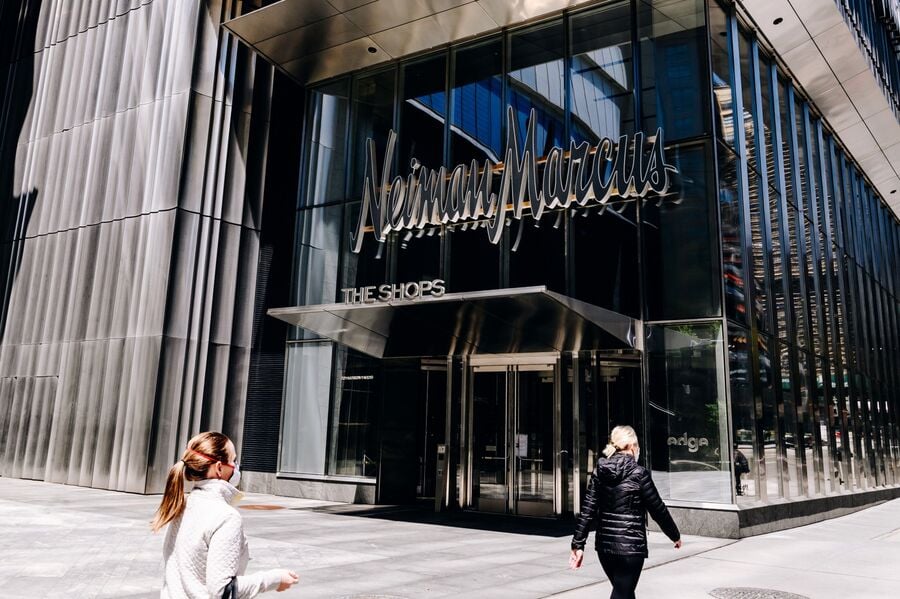

Wells Fargo & Co. is buying the former Neiman Marcus space at Manhattan’s Hudson Yards for roughly $550 million and plans to convert it into offices, according to people with knowledge of the deal.
The transaction includes about 400,000 square feet (37,000 square meters) spanning floors five through seven at 20 Hudson Yards, according to the people, who asked not to be identified because the matter is private.
The sellers are the developers, Related Cos. and Oxford Properties Group, which still own the rest of the 11-story building, home to the project’s shopping mall and restaurants.
Newmark Group Inc.’s Adam Spies and Doug Harmon are handling the transaction. The brokerage didn’t immediately respond to a request for comment. Representatives for Wells Fargo, Related and Oxford declined to comment.
The deal, expected to close soon, is one of the largest commercial property transactions in Manhattan this year. Many buyers and sellers have been unable to agree on pricing as values decline and borrowing costs rise.
Remote work and cost-cutting by tenants has hurt demand for offices in New York, but companies in the market for space have gravitated toward newer developments, including Hudson Yards. Private equity giant KKR & Co. recently agreed to expand its offices at the project on the far west side. The firm also owns a majority stake in the observation deck at 30 Hudson Yards.
Wells Fargo already houses its securities, investment banking and capital markets business at 30 Hudson Yards. The company purchased roughly 500,000 square feet of offices there in 2015.
The Neiman Marcus store, the luxury chain’s first in Manhattan, has sat empty since it shuttered in 2020 as part of bankruptcy proceedings.

It's a showdown for the ages as wealth managers assess its impact on client portfolios.

CEO Ritik Malhotra is leveraging Savvy Wealth's Fidelity partnership in offers to Commonwealth advisors, alongside “Acquisition Relief Boxes” filled with cookies, brownies, and aspirin.

Fraud losses among Americans 60 and older surged 43 percent in 2024, led by investment schemes involving crypto and social manipulation.

The alternatives giant's new unit, led by a 17-year veteran, will tap into four areas worth an estimated $60 trillion.

"It's like a soap opera," says one senior industry executive.
RIAs face rising regulatory pressure in 2025. Forward-looking firms are responding with embedded technology, not more paperwork.
As inheritances are set to reshape client portfolios and next-gen heirs demand digital-first experiences, firms are retooling their wealth tech stacks and succession models in real time.
